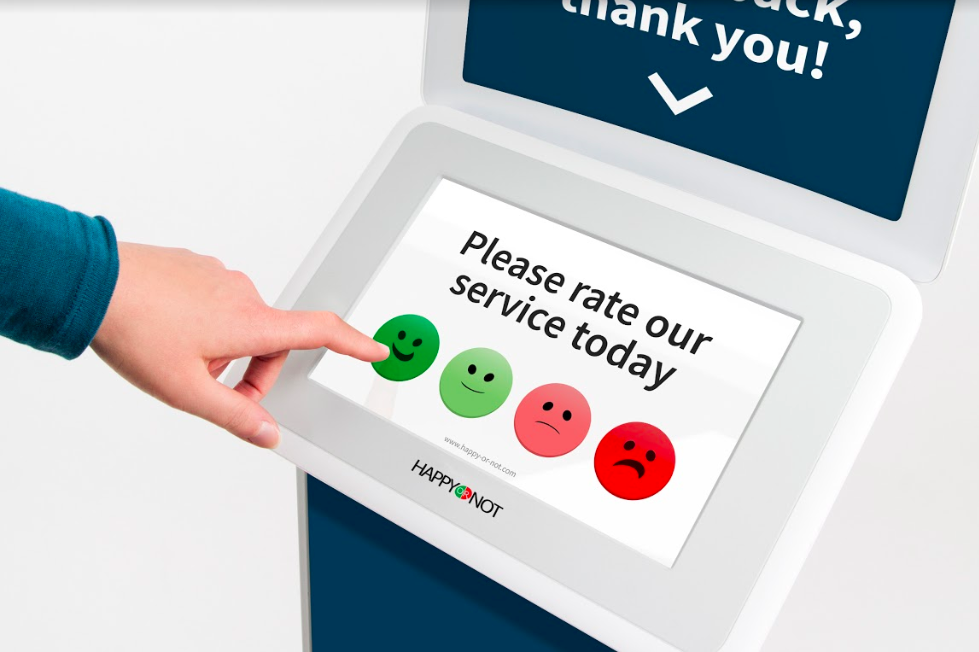Would you ever book an Airbnb stay without checking the scores of the host? Or agree to take a long journey with an Uber or Bolt driver with a low score?
Online reviews today have the power to make or break a business. Two-thirds of consumers look at these reviews before using a service online.
Emerging as the centre of the world of customer-reviews is the Danish startup Trustpilot, which has become hugely powerful to the brand of smaller online companies.
There are now 65m reviews on the site and companies all across Europe from energy supplier Bulb to money transfer site Transferwise boast about their top star rating. Even Trustpilot itself can brag about its 4-star-rating.
From an open internet to closed ecosystems
For Peter Mühlmann, the founder of Trustpilot, which has raised €162m in venture capital funding and employs nearly 800 people, the startup’s success is due to a broader breakdown in trust in society and online institutions, and the desperate need for companies to win that consumer trust.
“One of the defining things of the times we live in is a lack of trust in our society and, in particular, in online institutions. The fact that the rest of the world is saying that this is really important is a good thing for us,” Mühlmann says.
Partly as a result, companies are having to work much harder to prove themselves — particularly those that are smaller and less well known.
“The internet is to some extent being replaced by these closed ecosystems, such as Uber, Airbnb or Amazon. And the reason people prefer these ecosystems is that they are trusted,” Mühlmann says.
“Where we see our role is to say to everybody who's not a massive platform: ‘If you want that trust, then we can help you get it provided that you're providing good service.’”
Fighting fake reviews with algorithms
While reviews are becoming increasingly important for companies with online sales and services, there has at the same time been a rise in the number of fake reviews, which threatens to undermine faith in this very system.
For business customers of Trustpilot, there is a service that automatically sends out review requests to all customers after a purchase.
Smaller companies have been able to tweak the system by picking and choosing who will get a review request and can, therefore, pick the customers that will give them high scores.
“Hypothetically they can, but that is not within our guidelines and that can lead to a consumer warning,” Mühlmann says.
The more you are trying to manipulate your scores, the easier it is for us to detect.
The fight against fake reviews has increased Trustpilot’s investments in computer algorithms using machine learning to understand the data they pick up on consumer behaviour. In that way, Trustpilot can better find the companies that are trying to fool the system.
Mühlmann says that the system flags suspicious behaviour: for example the company all of a sudden gets 100 5-star reviews from a country where they have limited or no business. Or when the split between devices used to post the reviews (ipads, mobiles and computers) differs from what is normal.
“The thing is that the more you are trying to manipulate your scores, the easier it is for us to detect,” Mühlmann says.
No buy-out offers
Trustpilot has raised money from European venture capital firms such as Northzone, Draper Esprit as well as the American-European firm Index Ventures.
It has managed to do so well in part because it offers something different from its competitors - Trustpilot accepts reviews from invited parties but also from the general public.
The 12-year-old company, which has been rumoured to be on the path of reaching a unicorn valuation soon-ish, raised another $55m earlier this year. But it has surprisingly not been offered a buy-out.
“Never,” Mühlmann answers when asked how many times companies have reached out with the interest to buy his company.
“But every single competitor, except two, have asked us to buy them.”
We’ve looked at competitors and thought: actually, it makes more sense to invest the same money into Trustpilot
Where other European startup success stories have been snatched up big US tech companies (for example Izettle’s acquisition by Paypal and Skype’s by Microsoft), the online review website has never been an acquisition target.
Trustpilot has never done any acquisitions of its own either.
“We've had a ton of other companies asked us to buy them because it would make sense with some product addition but in the end, we have come to the decision not to,” Mühlmann says.
“We’ve looked at competitors and thought: actually, it makes more sense just to invest the same money into Trustpilot. And if we looked at other services, but thought that while maybe that could make sense it would also be a pretty dramatic distraction.”
Aggressive competitors
Although Trustpilot may be the biggest online review website it still has competitors like Feefo, Kiyoh, Bazaarvoice and Yelp, just to mention a few.
According to Mühlmann, there is always a struggle to secure its top market position when more aggressive American competitors are trying to gain on Trustpilot.
It has been speculated that Trustpilot is planning a public listing. Mühlmann refused to comment on the rumour directly but says there is no rush to go to market.
“$55m is a lot of money, but it also isn’t. How much did Linkedin raise?” Mühlmann asks.
The investors want two things: they want a return on their investment and for Trustpilot to be as big as it can be.
According to Trustpilot, there is no rush for an IPO as long as the investors get what they want.
“The investors want two things: they want a return on their investment and for Trustpilot to be as big as it can be. We can then be one of these flagship companies that attract other companies to their fund,” Mühlmann says.
For Mühlmann it is key to make Trustpilot a truly global company. And since the company does not operate in Argentina or Japan yet, the goal has not been reached.
“You can genuinely provide more value if you have more content. A Tripadvisor without reviews doesn't tell you a whole lot about the hotel. And so for us, the bigger we get, the better we get.”
Parents garage to almost unicorn
Mühlmann started Trustpilot from his parent’s garage, initially a side business to his already up-and-running e-commerce startup.
“At the time, I considered the e-commerce business a rather big success but after a while, I thought it would be more fun to do something that had more meaning,” Mühlmann says.
Trustpilot has revenues of €54m in 2018 with a loss of about €20m.
“It is the best known and the most trusted company which is going to be the winner in this space. And so, it's always been a part of the strategy to make really long term investments into securing our market position.”
But with a market as online reviews, there is still a lot of space to grow, according to Mühlmann.
“You can be number one and still be very small.”


